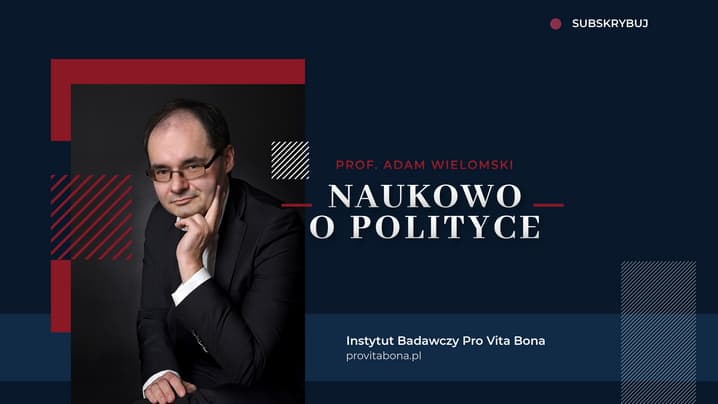The topic of the booklet in front of you is the issue of nationalism as well as Euroscepticism in the European Union and in particular a new phenomenon, which is emerging before our eyes, i.e. nationalism at a European level.
 European nationalism? This conceptual cluster is internally contradictory only at a first glance. The era when nationalists from one country shot at nationalists from a neighbouring one is a thing of the past. In a globalized world and integrated Europe nationalism perceived in such a way is long gone. It is a historic relic, which could be exhibited in an ideological museum. Its last remaining followers could be dubbed indeed as “dinosaurs”. Contemporary European nationalists, or as they describe themselves – patriots – do not stare into the past and do not cherish memories of prior conflicts. Euro-nationalists are not nostalgic, but they are focusing on the future.
European nationalism? This conceptual cluster is internally contradictory only at a first glance. The era when nationalists from one country shot at nationalists from a neighbouring one is a thing of the past. In a globalized world and integrated Europe nationalism perceived in such a way is long gone. It is a historic relic, which could be exhibited in an ideological museum. Its last remaining followers could be dubbed indeed as “dinosaurs”. Contemporary European nationalists, or as they describe themselves – patriots – do not stare into the past and do not cherish memories of prior conflicts. Euro-nationalists are not nostalgic, but they are focusing on the future.
The ascertainment stated above is the result of our trip to the European Parliament in Strasbourg, which we took in December of 2015 and our conversations that we had with the members of the European Parliament associated with the Europe of Nations and Freedom Group consisting of so-called Eurosceptics.
The purpose of this work is to examine the origins, the essence and the perspectives of Euro-nationalism.
* * *
This booklet consists of two parts. The first one has a theoretical character. Chapter I (the author of which is Adam Wielomski) discusses European nationalism taking into consideration the history of nationalism in Europe since its emergence during the French Revolution, up until contemporary times. The history of European nationalist thought is presented here. Its task was not to recreate all of the details, but to provide a general classification of various types of nationalism, defining the phenomenon and to present the historical trajectory of its development. We prove that there never was a single archetypical nationalism, something that in the spirit of Max Weber we could call “an ideal type”. Nationalism at first meant the right of nations to self-determination in its internal affairs (a republican and democratic postulate) as well as external ones (the postulate of the nation-state), in order to transform, at the turn of the nineteenth and twentieth century, into an either anti-democratic, authoritarian and Christian political current (Romance countries) or a racist and expansionist one (Germany). Currently nationalists are returning to their roots, becoming once again democratic defenders of the nation-state. While the nationalists of the nineteenth century stepped out against the monarchs of Divine Grace under such slogans as “the right of nations to self-determination”, their contemporary counterparts step out against the European bureaucrats, who are detached from the reality of the nations constituting the European Union.
The exit point for Chapter II (the author of which is Magdalena Ziętek-Wielomska) is the statement that many contemporary nationalists do not function under the banners of the nationalist doctrine, even if their worldview can be put in exactly that tradition. The main reason for this is of course the fact that nationalism has been ridiculed and compromised in the mainstream media by directly linking it with the image of the notorious doctrine of national socialism. Patriots – because that is how they call themselves – do not want to waste energy on combating this phenomenon. Nationalism – let us say in its classical or traditional form – was also rather ambivalent if it comes to the issues of international cooperation, from which one cannot escape in the globalized world. Finally, classic nationalism did not have a consistent, scientific justification. He referred to the concept of a nation, which has never been clearly defined. A question is posed in the text concerning the possibility of creating a modern nationalist doctrine that could solve problems, which classic nationalism did not see or did not try to tackle. The doctrine of natiocratism seems to be an interesting attempt at disengaging from that impasse. It was created by Józef Kossecki – a Polish scientist and activist of the nationalist movement. In this chapter the basic foundations of natiocratism are presented, as well as the question is posed whether there is a possibility of utilizing that doctrine for the sake of nationalists’ and Eurosceptics’ political struggle.
…
The second part of our booklet consists of transcripts from our conversations with Eurosceptics, which we conducted in the European Parliament. We registered these conversations in the form of interviews, which we have elaborated in order to make them available for our readers. The most important interview surly is the one with Marine Le Pen – the chairwoman of the Europe of Nations and Freedom group as well as the leader of the French National Front, i.e. the political party which achieved 30% of the popular vote in the 2015 local government elections and has became the premier political faction in France as far as popularity is considered. Marine Le Pen herself grew to be the main candidate in the upcoming presidential elections. We also conducted interviews with four other prominent representatives of this group from France, Austria, Great Britain and Poland.
A different image of European contemporary nationalism emerges from the available literature and the materials that we collected, than is presented in the mass-media promoted stereotypes. It is also far from the thought of the “great classics”: Charles Maurras, Maurice Barrès, Enrico Corradini and Roman Dmowski. The completely new feature of this current can be seen in the pan-European nature of this doctrine. Contemporary nationalists created an authentic “nationalist international” against European federalism represented by the European Commission as well as the “over-lordship” of German chancellor Angela Merkel. The Europe of Nations and Freedom group is an alliance of political parties offering an alternative European project, based on free nations, the purpose of which is to counter the vision of a unipolar world under the absolute domination of the United States of America with the vision of a multipolar world based on the balance of power between the USA, Europe, Russia, China and perhaps smaller players (the classic „concert of powers” known from modern European history).
We would like to inform you that the content presented here has been published initially in Polish in the “Pro Fide, Rege et Lege” journal (no. 75/76 from 2015/16).
Książkę można dostać (za darmo) w naszym sklepie: TUTAJ


